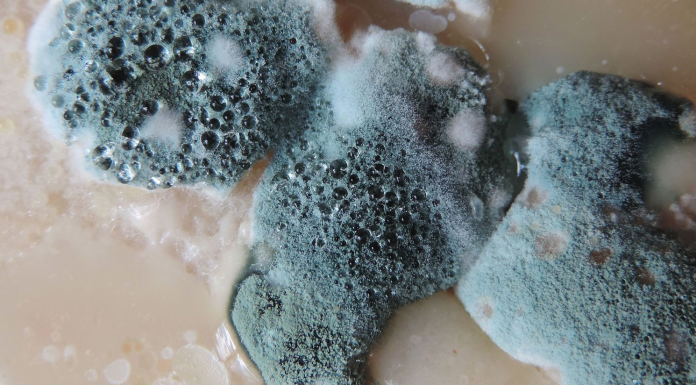
“If the concentration of mold spores in the air becomes too high, like inside a mold-contaminated building, it can cause an adverse health reaction.”
Unoccupied buildings, abandoned during the coronavirus shutdowns, give fungi a great opportunity to move in.
Sep 1, 2020
Wired – LAST MONTH, I took a road trip to North Carolina. The area had just experienced an extremely wet and rainy spring, and the Airbnb I was staying in had been unoccupied since Covid-19 halted almost all travel in March.
When I unlocked the door, a putrid smell hit my nose immediately, like a wet beach towel left too long in a hot car. I was now sharing my rental house with some sort of mold.
The pandemic has forced all sorts of buildings to sit empty for long periods of time. As people venture back into their homes, schools, and offices again, they may also find an unwelcome surprise inside.
The Centers for Disease Control and Prevention warns people who are reopening buildings to watch out for potential hazards like mold and Legionella pneumophila, the bacterium that causes Legionnaires’ disease.
Greg Bukowski, CEO of the mold inspection and removal firm Moldman USA, says he’s seen an uptick in customers in the Chicago and St. Louis areas where his company is based. “Homes that have been unoccupied for months have a high likelihood of having water-intrusion issues and subsequent mold issues,” he says.
Water intrusion can come from something like a roof or plumbing leak or high humidity as a result of leaving the air conditioning off.
This is not a new phenomenon, of course. Vacation homes and foreclosed properties often harbor mold. New construction techniques may be somewhat to blame: Because homes are now tightly sealed for energy conservation, they may be poorly ventilated and susceptible to issues like mold.
Every year, some unlucky school districts return in August or September to find classrooms full of the stuff … Read more.
ALSO ON HEADLINE HEALTH TODAY: Tom Seaver, 75 | Florida Man Spends $689K In Virus Cash On Boat | Illegal Charged In DUI Deaths Of 4 Army Officers, Police



